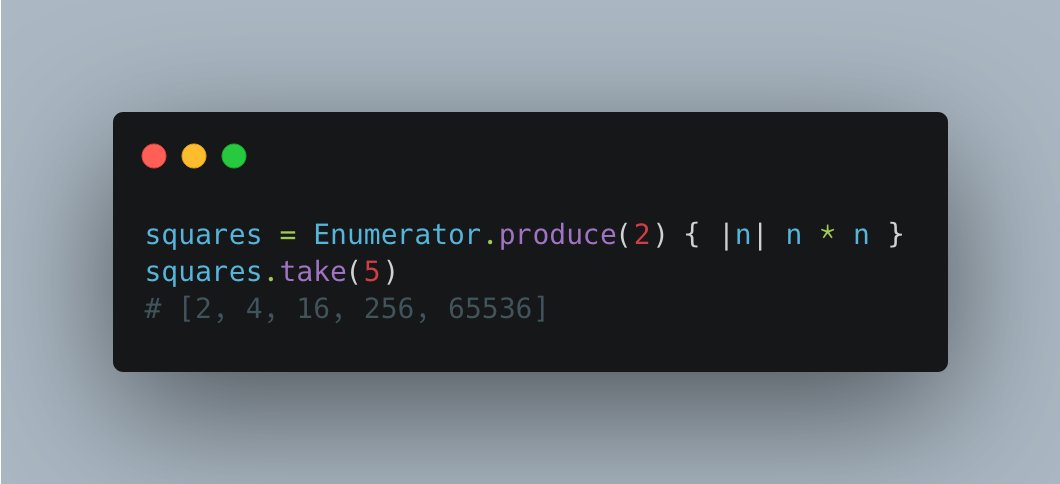#Ruby's Enumerator.produce is a really cool method! It can generate an infinite series where each item is used to calculate the next.
✨ For example the series of even numbers:
✨ For example the series of even numbers:

Interestingly though, Enumerator.produce cannot be used to generate more complex series like squares because the input from each step is the output of the previous step 

To generate squares, we need to decouple the input to our block from the return value. *Ideally* we could call our block like: 

The functional programming world has a function called "unfold" that looks a lot like Enumerator.produce but with the following additions:
1. it can halt by returning nil
2. it uses a separate "seed" value as the input for each step rather than using the previous output
1. it can halt by returning nil
2. it uses a separate "seed" value as the input for each step rather than using the previous output
"unfold" is useful because it allows you to generate complex enumerations without needing to go full manual with the constructor.
It is powerful enough that you could even implement Enumerator.produce in terms of it! 😆
It is powerful enough that you could even implement Enumerator.produce in terms of it! 😆
There is a lot of theory behind this kind of method. unfold and other related functions can be used to abstract away all the manual parts of looping.
If you want to do a *deep* dive, google "anamorphism" 🤓
If you want to do a *deep* dive, google "anamorphism" 🤓
• • •
Missing some Tweet in this thread? You can try to
force a refresh







